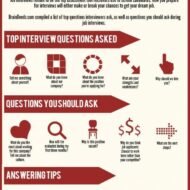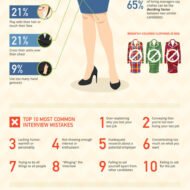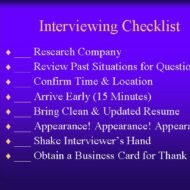Posted by Managementguru in Human Resource, Interview Questions, Strategy, Training & Development
on May 30th, 2014 | 0 comments

How Do You Answer the Job Interview Question – What is Your Greatest Strength “If you fail to prepare, then be prepared to fail”- This saying hundred percent fits the rule of the game when it comes to job interview. Spade-work is absolutely essential: – about the company in which you are seeking a position, key members involved in the making of the company, the culture and other prospects. FIQ’s of JIQ’S: Let us look at some of the common and frequently asked questions in interviews and try to understand what the interviewer expects your answer to be. Try to gauge the underlying purpose of the question in relevance to the job being applied for and please also realize the fact that interviews are acid-tests to estimate your personality as a whole; not simply your knowledge, skills and experience. What do they mean by strength? Strength is nothing but what you are good at. Say, you might be good at singing, you might be good at ballet dancing, and you might be good at even eaves-dropping! But is it a pleasant or an appreciable attribute to be discussed when it comes to your job interview? Always remember when asked about your strengths, you have to pin-point the qualities that are needed to complete the task you might be assigned for, in case you are selected. Everything in relation to the job position you are trying to acquire. Understand Employers’ Perspective and Satisfy Their Expectation: Neither be blunt nor blatant, try to give a big picture of all your experiences in the previous jobs as an impressive package and make the interviewer feel that you will definitely be an asset to the company. If it is a sales manager position, you might want to explain precisely how you completed your sales targets ahead of time, how you increased the growth rate of your company in a time-bound fashion and how you pulled your team through tough situations. If you are naturally good at communicating, no probs, but if not, it is better to have a list mentally prepared of your greatest strengths prior to an interview. By communicating, I don’t mean to say talking but making your point noted or reaching across. If you are a fresher, you have nothing to lose by being bold and assertive as it will only add to your experience. All mistakes are experiences which teach us “how not to perform a task” or “how not to behave in a particular situation”. Here is a list of the 10 most desirable traits that all employers love to see in their employees: A proven track record as an achiever…especially if your achievements match up with the employer’s greatest wants and needs. Intelligence…management “savvy”. Honesty…integrity…a decent human being. Good fit with corporate culture…someone to feel comfortable with…a team player who meshes well with interviewer’s team. Likeability…positive attitude…sense of humor. Good communication skills. Dedication…willingness to walk the extra mile to achieve excellence. Definiteness of purpose…clear goals. Enthusiasm…high level of motivation. Confident…healthy…a leader. Courtesy – http://dev.fyicenter.com Not everybody has all these qualities imbibed in them; it all lies in your expression of interest to learn those qualities which you are slightly lacking and enhance those qualities which you are already good at. It is that spark of enthusiasm makes you all different and more prospective than your competitors. With this question, the interviewer seeks to find out if: • Your strengths align with the company’s needs • You can do the job and perform like a rock star • You are the best person for the job — no need to hold out for someone better • You have...

Posted by Managementguru in Business Management, Human Resource, Interview Questions, Principles of Management, Training & Development
on Mar 22nd, 2014 | 0 comments

The Purpose of a Job Interview Interviewing cannot be viewed just as a two way conversation, but as a process of social interaction. Personal interview is the most flexible tool that helps to obtain the most accurate information about the prospective candidate as the presence of the interviewer makes it hard for the respondent to report incorrectly. You might have seen some poker players with a winning spree. That is because of their ability to guess opponent’s potential apart from their own knowledge about the game. The same applies to an effective interviewer who elicits the most appropriate information from the interviewee by gauging his potential and scope. Ambience: The ambience of an interview should facilitate the respondents to freely come out with their ideas about what they expect from the job and also what they are capable of contributing in terms of lifting the organization to greater heights. Fear generally grips freshers who may not have had exposure to such situations that decides their future. Even before completing their engineering or professional courses students get placed in very good companies that offer much scope in terms of pay and career advancement. It has become statutory for these students to express themselves in the most impressive manner to capture the interest of the interviewers and to outsmart their rivals competing for the same position or capacity. Body Language: Your body language speaks volumes about the self confidence you possess, whether you are really capable of leading. Pleasing personality is definitely a plus and it is a winning strategy to get noticed among the pool of prospects. Try to be as modest and dignified in your behavior and attitude but at the same time be self assured to avoid any question that falls beyond the scope of discussion or if it is aimed to puncture your ego. Stress Interviews: Most of the stress interviews are structured in order to test the tolerance level of the prospective employees given a crisis situation and also to judge their decision making skills in such a situation. Rapid fire questions are thrown before you, wherein either you can buy some time to think, keep quiet to prove your self control or burst open and check out. Higher level management interviews are of this order as managers of the senior levels and CEO’s are constantly exposed to pressure situations and they need to keep their think tank cool to keep going. Systematic interviewing using lucid language is welcome. The session must be to the point and the respondent should not lose interest in the interview. Emotional and leading questions better be avoided. The interviewer must be a trained man who has the ability to conduct the interview in the most natural way and also should be well informed about all the possible and important aspects about the prospective candidates. Hypothetical Questions: Recent trend is to ask hypothetical questions where the respondent has to place himself in a particular situation and arrive at solutions. This probes beyond the skill sets that the respondent possesses and it concentrates on the crisis management ability, presence of mind and the quick wit of individuals. Corporate companies conduct their interviews in a completely different manner. They are more concerned about the attitude, morale, soft skills, role analysis and the like. How an individual performs as a member of a team or a group and how well he can lead his team in times of crisis are a matter of concern in big corporates. Say for instance, if you are the head of a company, what possible changes would you bring in terms of sales, marketing and production? What will be...

Posted by Managementguru in Human Resource, Interview Questions, Principles of Management
on Feb 27th, 2014 | 0 comments

Interview Interesting Aspects An interview can be explained as a mutual conversation or a one to one meeting that gets stretched into a “recruitment process or promotion.” In French, from which it originates interview means ‘inter-sight’ and in Latin, it is interpreted as ‘seeing each other.’ Nowadays interview is a powerful tool in psychology, in the healthcare profession as well as in business. Too many approaches in the interviewing process may be successful as fact finding tools but without looking at the dynamics existing between an interviewer and interviewee; such meetings then become lifeless. The notion of an interview should not only aim at collecting scientific data but also look into the human aspect to capture the essence of a person. Only a trained interviewer must be allowed to evaluate the interviewee’s motivation, personality component and the influence of environmental/ emotional problems on him/her. The two common pitfalls in an interview are the ‘stereotyping’ of the individual and the unconscious exercise of personal bias. Is it wise to judge a person based on similarities to some other person/ trait? ‘Halo Effect’ is the tendency to judge a person based on one of a few specific characteristics- the traits liked or disliked by the interviewer need not be superimposed on the interviewee to decide if he is suitable for the job. All depends on the interviewer and his characteristics which help or hinder an interview from the interviewee’s view point. Care must be taken on the part of the interviewer not to conclude the interview in an abrupt manner and it is also necessary for him to create a favorable image for the company in the mind of the interviewee. The interview is not to be considered merely as a selection technique, but as a means of in- depth analysis that facilitates closer and enhanced communication. This approach is very much necessary for psychologists, teachers, managers, leaders and the like. Definition: The interview is a conversation with a purpose. There are three purposes. 1. Obtaining information– Collecting relevant data about the candidate’s background, training, education, experience and interests. 2. Giving information– Apprising the interviewee with the present position of the company, the future plans, specific job and the personnel. 3. Motivation– Instigating the candidate to join the company Advantages of Interview: Interviews prove as a better means to measure the ability and traits of a personality rather than through written tests or other techniques. It is easy to determine how a person reacts in a conversation and whether he is good looking (here it means if he/ she is presentable, looks are equally important). A skilled interviewer can easily determine the personality traits such as loyalty and responsibility that can be expected from the candidate during this personal meeting. Limitations of Interview: · Stereo typing · Halo Effect · Personal bias Interviewing Techniques: A. Patterned Interview: This was developed by Mc. Murry. Senior recruitment, promotion and appraisal interviews fall under this category. This patterned interview contains no questions related to ‘job skills’. Basically it is conducted to appraise personality, motivation and interests. Reference checks and academic records determine knowledge and job competencies. The following personality traits could be measured through patterned interview according to Mc. Murry: i. Stability ii. Ability to get along with others iii. Self-reliance iv. Willingness to accept responsibility v. Freedom from emotional immaturity vi. Motivation B. Directive Style: This type of interview is appropriate when the interviewer seeks factual information only where the interviewee is not given much freedom of expression and so becomes defensive. There are also chances that the relationship between the interviewer and the interviewee might be impaired. C. Non-Directive Style: This requires more time, and suitable for exploring sensitive matters, understanding feelings and...






